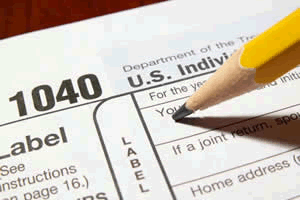Property Tax
Property taxes are considered as ad valorem or millage taxes. These taxes are paid on ownership of the property and are based on the market value of the property - usually on a percentage basis. Market value is measured by the county assessor's office through state law and is defined as the amount an unobligated buyer would willingly pay for the property.
Property values are assessed as often as every year and not more than every four years with a visual/physical inspection done every six years. If your property values change, you will receive a "change of value" notice. Assessment is made on two factors: land value and building/improvement value.
In many cases, property taxes are calculated in mills, which is 1/1000 of a dollar. Taxes would be the value of the property divided by 1000 and then multiplied by the number of mills the jurisdiction charges. Therefore, for a property with a $100,000 value in an area charging a tax rate of 10 mills, the annual tax rate would be $1,000.
Property Tax Uses
- Roads and sidewalks
- Emergency services
- Parks and recreation
- Schools
- Hospitals
- Libraries
- Sewer and garbage disposal
Personal Property Taxes
Property taxes may also be levied on personal property on a specific rate and annual basis. Personal property taxes vary according to jurisdiction and are applied to items such as:
- Motor vehicle - cars, boats, RVs, etc
- Business inventory
- Art and other durable, non-household goods
- Stocks and bonds
Property taxes are not inevitable. There are ways to challenge and reduce your property tax bill. Some sectors of society are even exempt from paying property taxes. If you believe your property has been inaccurately assessed, you can appeal the bill through the County Board of Equalization. A property tax lawyer can evaluate your appeal.
Property Tax Exemptions
Those eligible for property tax evaluations or exemption include:
- The elderly
- People with disabilities
- Non-profit organizations
- Registered historical properties
Many states also have programs to assist low-income families deal with property tax issues.
If you have questions or issues regarding your property taxes, speak with a local property tax attorney today. Property taxes are different from community to community. You need someone with knowledge of your local area to help you protect your family and your property.
Tax Term of the Day
Offer in Compromise
An offer in compromise is one of the programs offered by the Internal Revenue Service to allow someone to satisfy the tax liability owed by paying less than the full balance.Category: Tax Law
Latest Tax Question
Why am I being Audited by the IRS?
There are certain factors that the IRS looks for on a tax return that can lead the IRS to select a given tax return for an audit. The IRS keeps the exact list of those factors and the formulas it uses to evaluate them a secret.
Category: Tax Law
Share this page with a friend
Tweet

